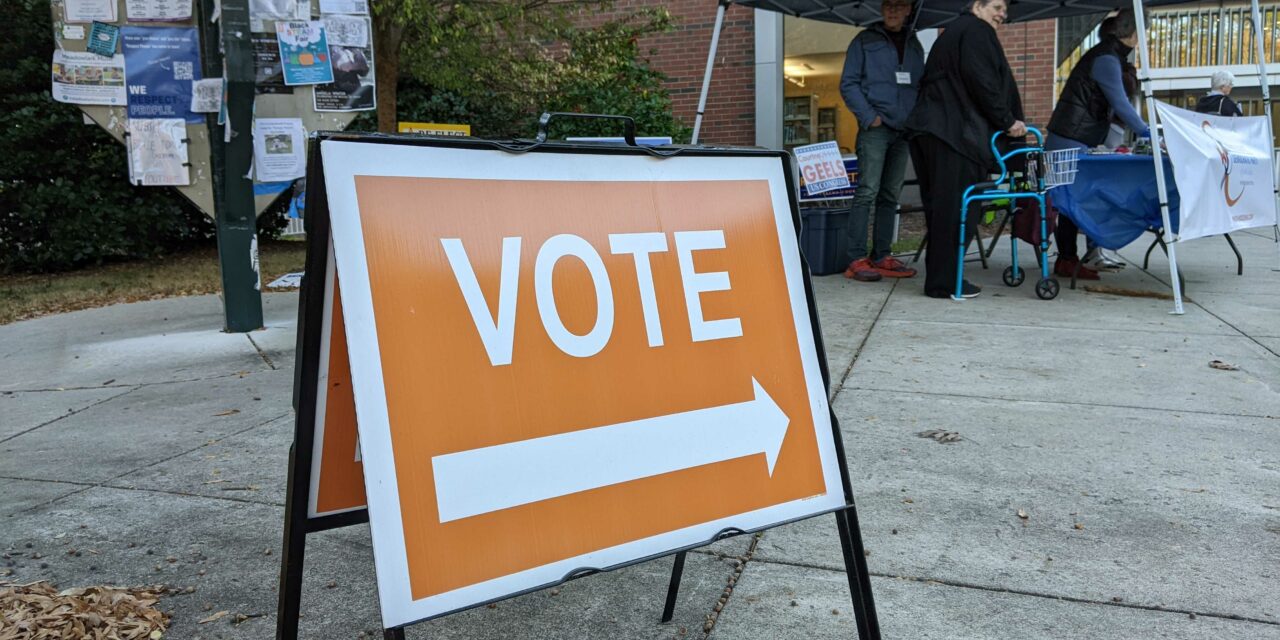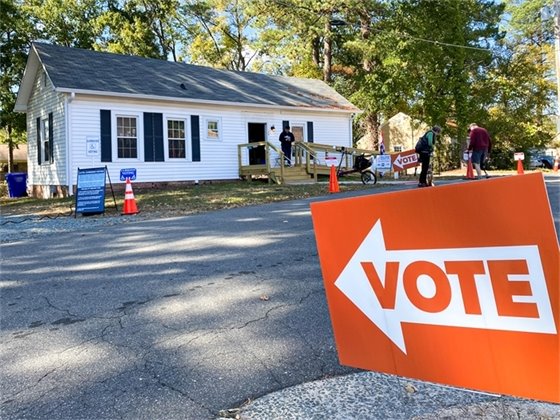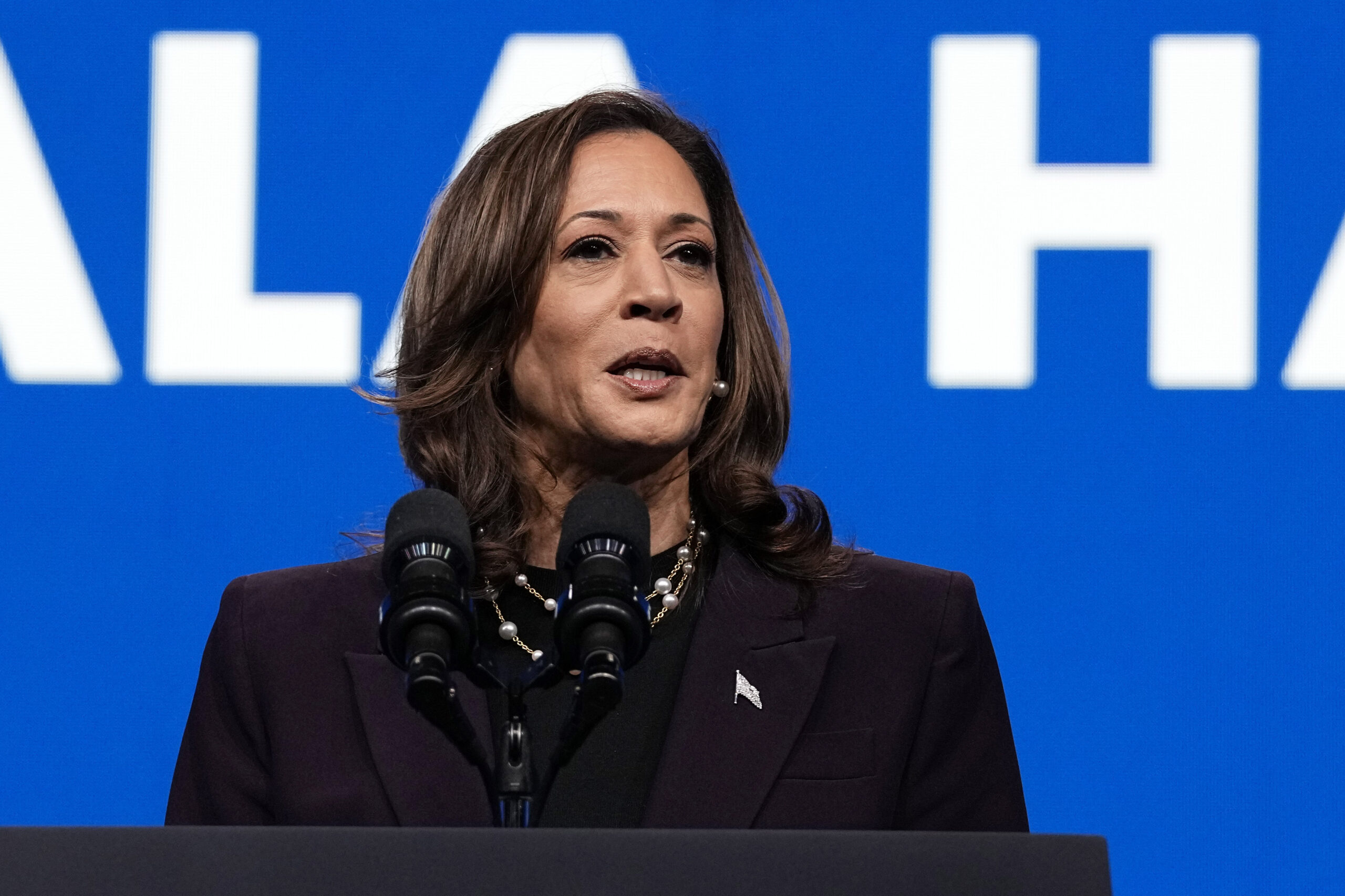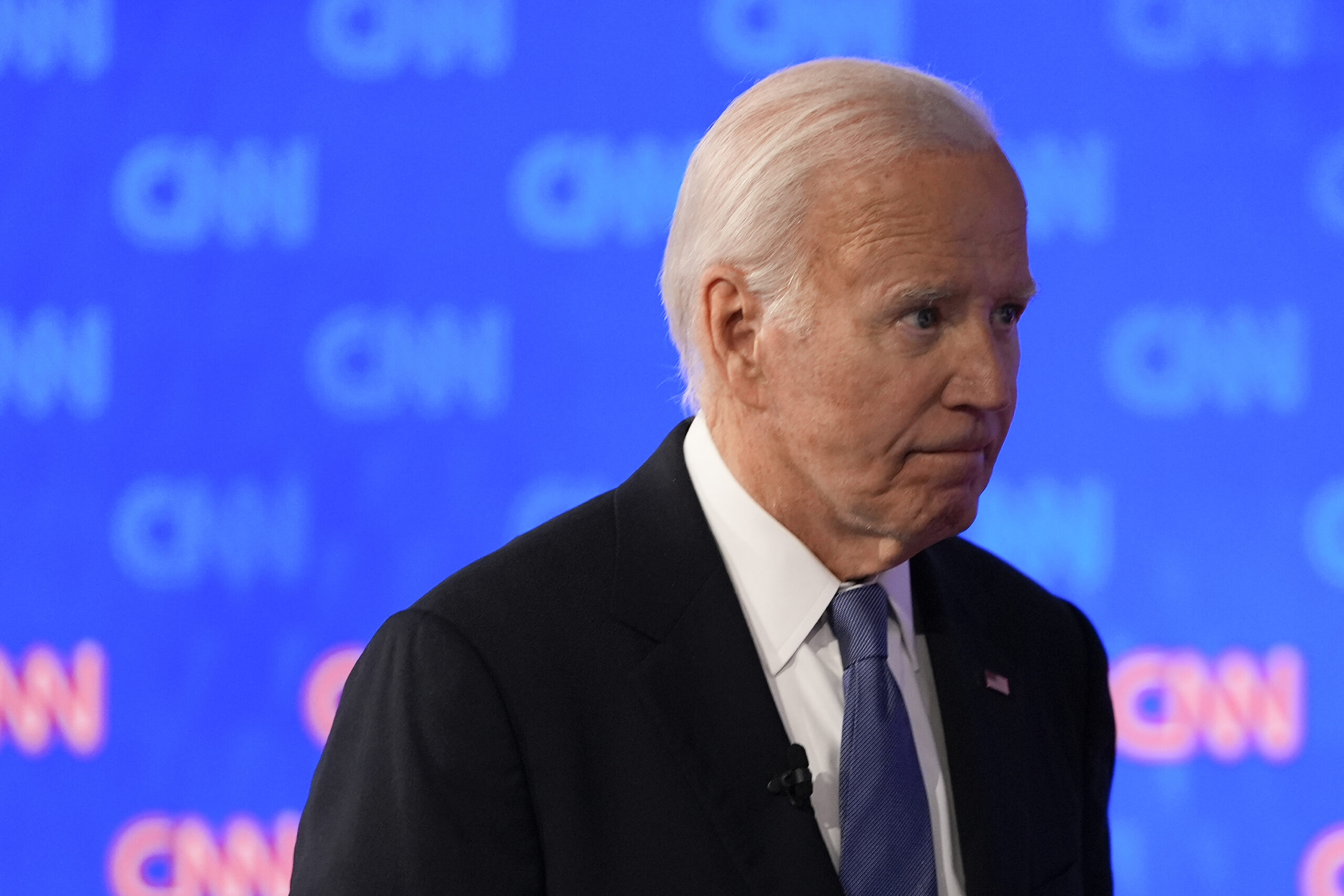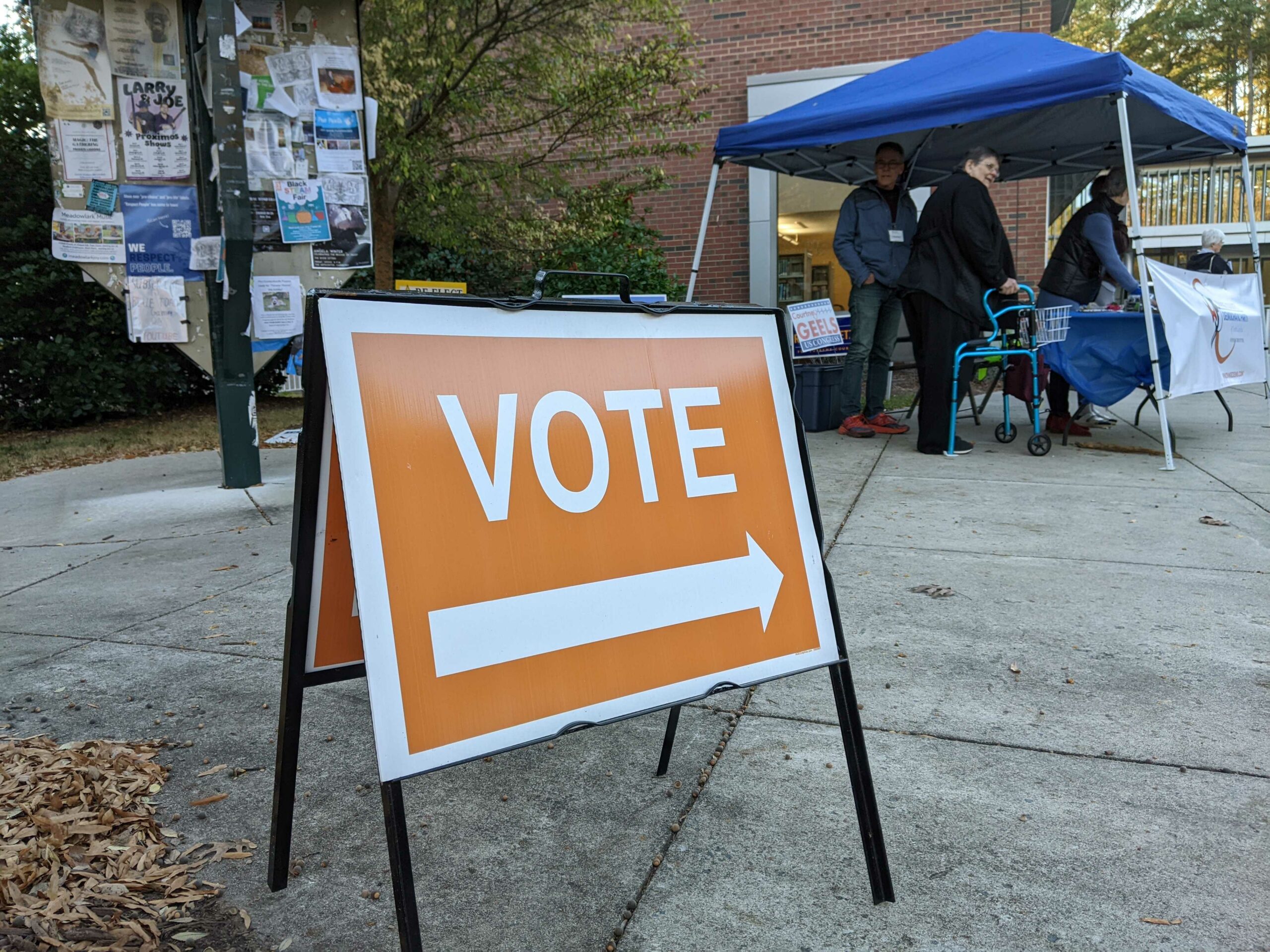Early voting is underway for the 2023 municipal elections, and observers say the races for Chapel Hill Mayor and Town Council could come down to a handful of votes. Which factors may turn the tide?
A recent survey from Public Policy Polling suggests that one crucial factor may be the generational divide.
The poll conducted last month found an extremely tight race for Chapel Hill Mayor, with Jess Anderson and Adam Searing in a virtual tie and 40 percent of residents still undecided. The poll also found an equally close contest for Town Council, with eight candidates separated by just a few percentage points in the race for four open seats.
Click here for the full results of last month’s survey.
But while the overall vote appears to be equally split, the poll also finds a clear age gap — not just in terms of which candidates voters support, but also in terms of where they stand on the key issues.
In the mayoral race, PPP found 30 percent of Chapel Hillians supporting Jess Anderson, with 29 percent supporting Adam Searing. But Searing’s support comes heavily from older residents: among voters older than 65, Searing leads Anderson 37-23. Anderson, meanwhile, draws her support from younger residents: she leads Searing 35-21 among voters under 45, and holds a slight lead over Searing among voters in the middle.
That gap is also reflected in Anderson and Searing’s respective favorability ratings: younger Chapel Hillians are far more likely to approve of Anderson but disapprove of Searing, while for older voters it’s the other way around.
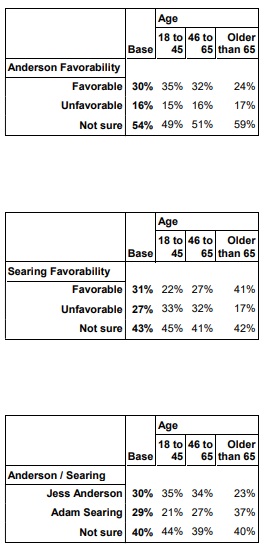
Photo via Public Policy Polling.
The generation gap also extends to the race for Town Council, where four candidates are running as a pro-Searing slate and five candidates are more aligned with Anderson. Public Policy Polling found most Chapel Hillians were still undecided two weeks ago, regardless of age — but among those who had made up their minds, the pro-Searing slate (David Adams, Breckany Eckhardt, Elizabeth Sharp, and Renuka Soll) had significantly more support among residents over 65, and significantly less support among millennial and Gen Z voters.
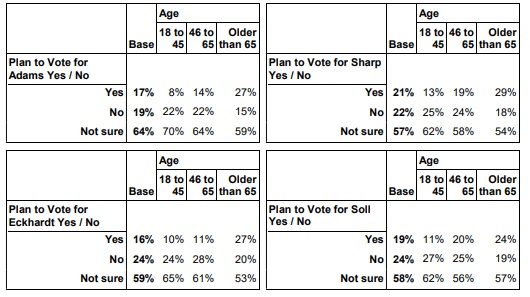
Photo via Public Policy Polling.
The gap was not as stark for the five Anderson-leaning candidates (Melissa McCullough, Jon Mitchell, Theodore Nollert, Amy Ryan, and Erik Valera). Still, PPP found a higher percentage of older voters who had made up their minds not to vote for them — Valera, in particular.
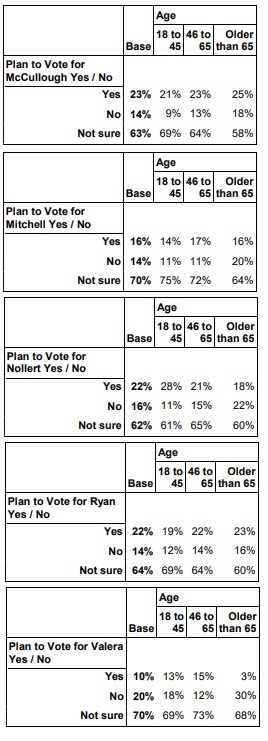
Photo via Public Policy Polling.
The difference in voting behavior appears to be driven in part by a deeper divide on the issues facing Chapel Hill, especially around housing and population growth. Most over-65 voters say they believe Chapel Hill is growing too fast — but a plurality of under-65 voters disagree, saying that the town is either growing at the right pace or not fast enough. Likewise, a sizable majority of under-45 voters want to see a significant amount of new housing built in the coming years, while over-65 voters generally don’t. (Middle-aged voters are more evenly split.)
These views are also reflected in voters’ opinions of prominent local organizations — particularly CHALT, the Chapel Hill Alliance for a Livable Town, which has been opposed to rapid population growth. A plurality of voters have no opinion of CHALT – but among those who do, voters under 65 disapprove of CHALT by a wide margin, while senior voters view the group more favorably.
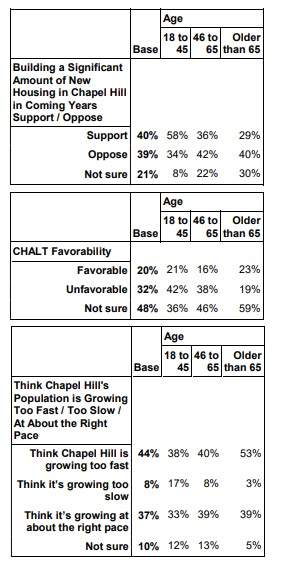
Photo via Public Policy Polling.
So who’s likely to come out ahead on Election Night? Voter turnout tends to be higher among older voters than younger voters, and observers say that appears to be the case in this election as well — at least in the first week of early voting. That’s potentially good news for the pro-Searing slate, and advocates are taking notice: earlier this week the pro-Anderson Triangle Blog Blog tweeted a call for younger residents to help “bring that average age down.”
keep. voting.
bring that average age down. we can do this.
— triangleblogblog (@triblogblog) November 1, 2023
But while the generation gap is noteworthy, the key takeaway from last month’s PPP poll is the large number of voters who remain undecided: 40 percent in the mayoral race, and a sizable majority in the Town Council election.
PPP director Tom Jensen says that means all the candidates still have plenty of opportunity to reach out to voters in the campaign’s final days, and find themselves celebrating next Tuesday — regardless of how old the median voter turns out to be.
Chapelboro.com does not charge subscription fees, and you can directly support our efforts in local journalism here. Want more of what you see on Chapelboro? Let us bring free local news and community information to you by signing up for our biweekly newsletter.

